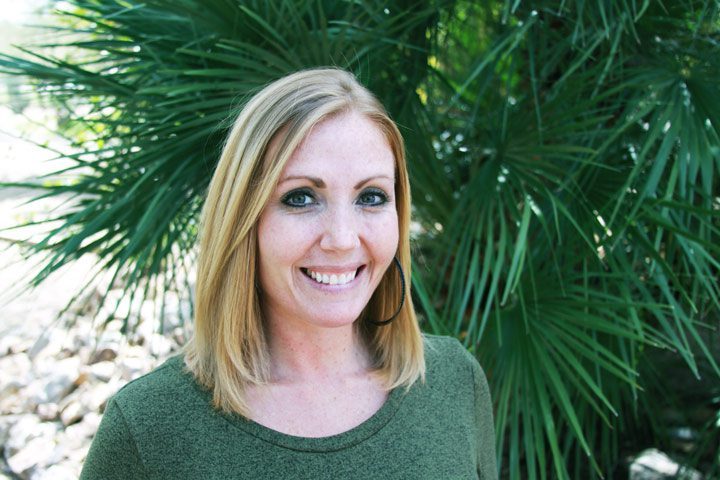
By Lauren Impraim, MA, LPC
Family Program Manager
When an individual enters treatment for addiction or behavioral health, there is often at least one other person who has been deeply impacted. Some family members would like to point the finger at the identified ‘issue’ being the person who is in treatment; however, the sooner family members accept their own place in the system, true healing can begin to happen for everyone. One thing that needs to be acknowledged is the entire family is walking the path of recovery. Family members and patients often spend too much time “fixing” one another. The best way to support a loved one in recovery is for family members to work on their own self and their own change.
As the manager of the Cottonwood Family Program, I tell everyone that recovery is a family matter. Every person in the family system is in recovery. This means everyone in the system plays a role, and they have their own personal work to do. When a person comes into treatment, they are able to gain knowledge and skills to have a foundation for successful recovery. That same client may be willing, open and committed to recover, but, then return to a family system that hasn’t changed. They will, then, be at even greater of a risk to relapse than prior to treatment. The dysfunction in the family system is much stronger than any desire for a life of recovery.
Family members often enter the recovery process protesting and demanding they are not the issue. They will find justifications for their behavior (i.e., addiction, lying, debt, legal consequences, etc), that will keep the focus off of their own emotional wounds. Many family members aren’t able to see the impact the presenting problem has had on the family. Generally, family members may not see their loved one’s behaviors as a mental illness; therefore, they may not understand they have a role in the issues. It is vital to help family members understand how issues such as codependency, shame and trauma all complicate the family system. These things negatively impact effective communication. Knowledge, awareness and insight into these issues can make a difference between a life of illness and life of health in recovery.
Codependency is a concept tossed around a lot in the field of addiction and behavioral health. It is a subject that has grown and developed throughout the years, and may be deeply ingrained in families. When family members are acting on auto-pilot without insight into their behaviors, they may become so consumed in the behaviors of others that they lose their sense of self. When you scratch the surface of a codependent, you will find anger, hurt and resentment.
Shame is a huge contributing factor to relapse. It could be defined as an intensely painful feeling of experience of believing we are flawed and therefore unworthy of love and belonging. More so, something we’ve experienced, done or failed to do makes us unworthy of connection. Shame is experienced deeply within the individual and within the system as a whole. Families often shame one another without realizing it, in an effort to self-protect. It is internal, so it is not always apparent to others, or even ourselves. Many people have learned to hide from shame by using different types of shields. Some people have learned to people-please, others have learned to numb it, and some have learned to displace it. The key is to bring this to awareness, understand the role and to be mindful of not inflicting shame upon shame.
Trauma is often the seed to mental health or addiction struggles. Many people do not know what trauma is or how it impacts behaviors. Many people enter treatment with life-long trauma and some developed trauma from their substance use. Society teaches people to ‘buck up’ and ‘push through’ experiences that may be very painful. This leads to normalization of trauma or a disconnection of self in order to survive. People may be unsure how to experience their feelings and may find themselves numbing or pushing away anything that is uncomfortable.
All of these dynamics greatly impact family systems and must be explored for true healing to occur. All of these issues are underlying, hidden. There are times we may not be aware of what’s happening beneath the surface and we respond with impulse. Typically, we respond in a way to try to protect ourselves, but in doing so we could really hurt someone else. This highlights the importance of communication and connection. Family members need to share their internal experiences and perspectives to come together.
In regards to communication, the condition of the environment needs to be considered. Participants receive conversations better when unnecessary stressors and tensions are minimized. It is important to think before we speak and practice using “I” statements. Appropriately using “I” statements, helps to remove the tendency toward shaming the other person due to our own pain or defensiveness. In recovery, feelings are new and can be painful. For many people, they’ve learned to numb their feelings. Therefore, communicating them can be very challenging; however, feelings are not facts. They are meant to be shared to bring upon more authenticity and closeness within the relationship. Lastly, boundaries need to be set. Boundaries are for self-care. They are meant to empower or protect oneself. They are not meant to control or punish another.
As you can see, recovery is not a quick-fix. There are many contributing factors and influences, and family plays such a critical role in the process. Gaining awareness, education and direction are great places to start. When we can put our own shame and fear aside and look within, we can change ourselves…which can ultimately help in changing the life of our loved one. It takes great courage to work on ourselves, but it is all worth it.






